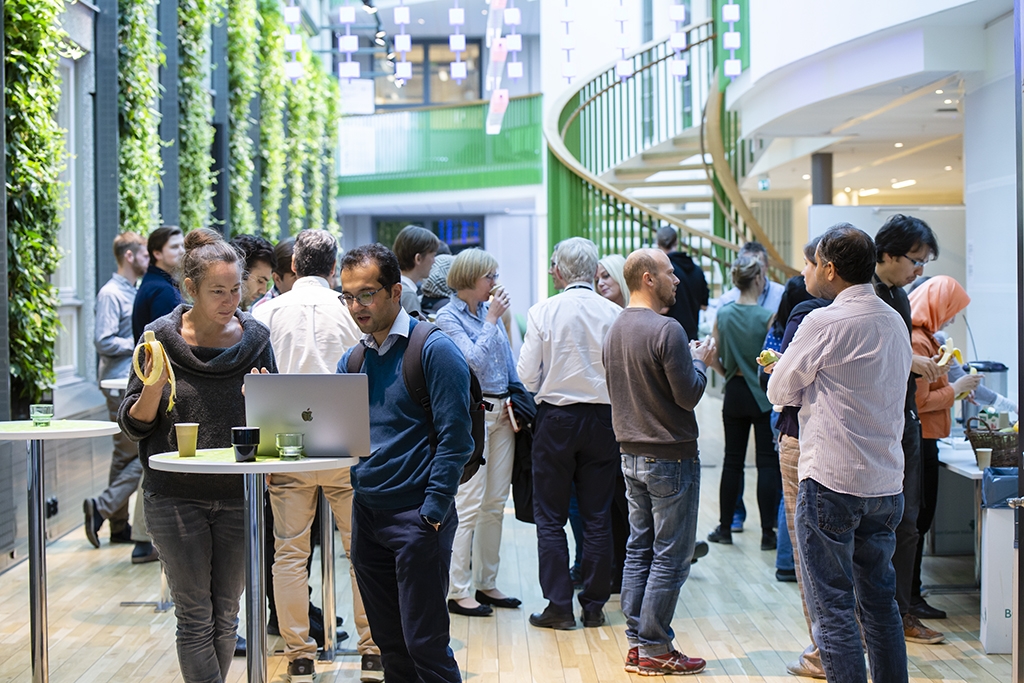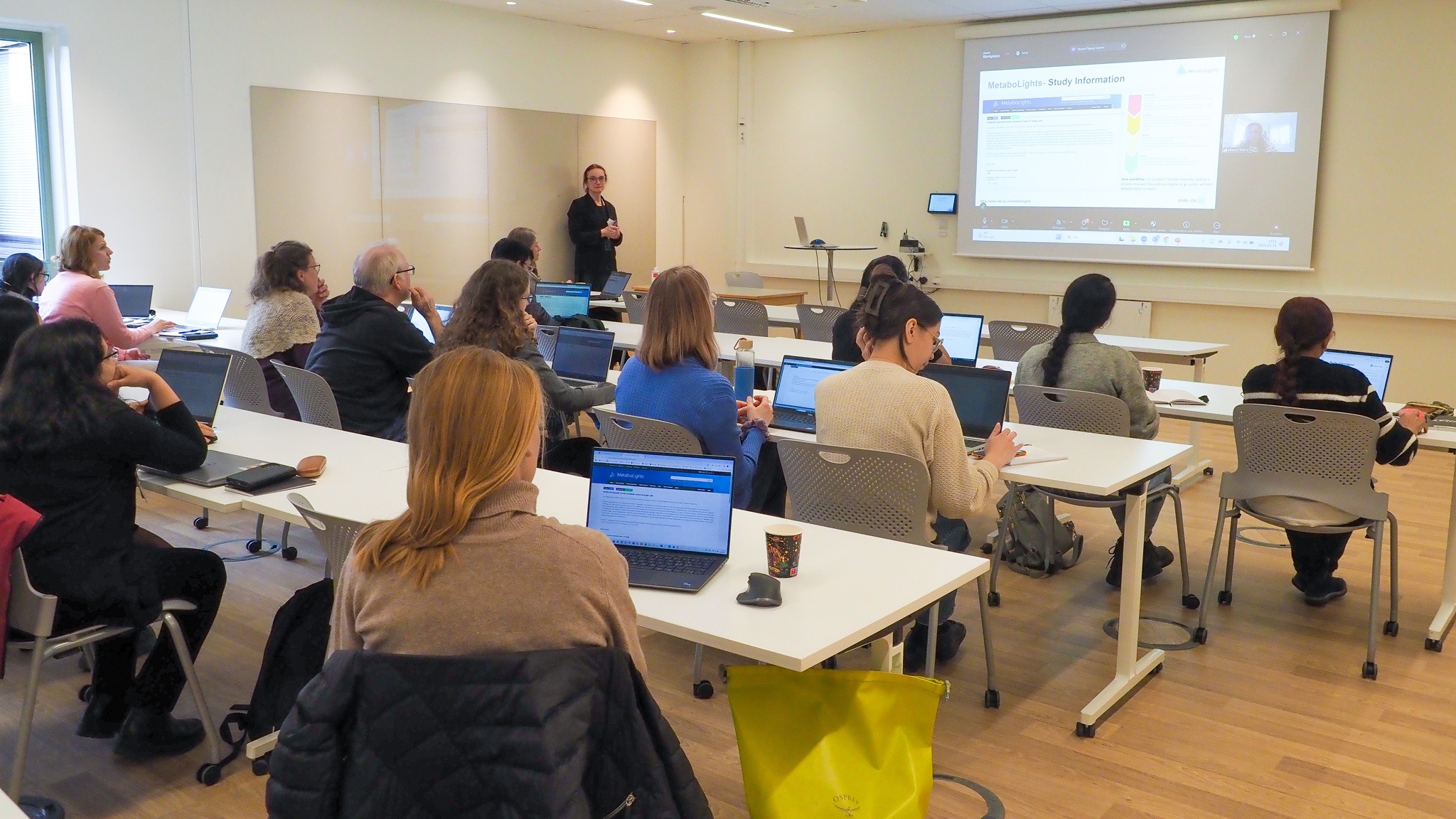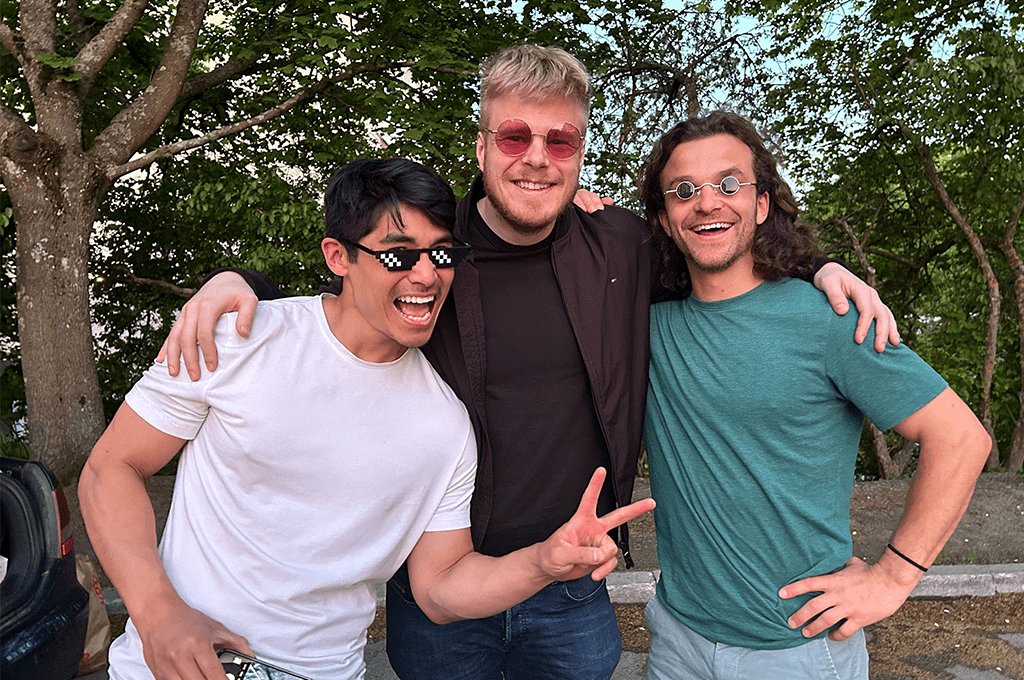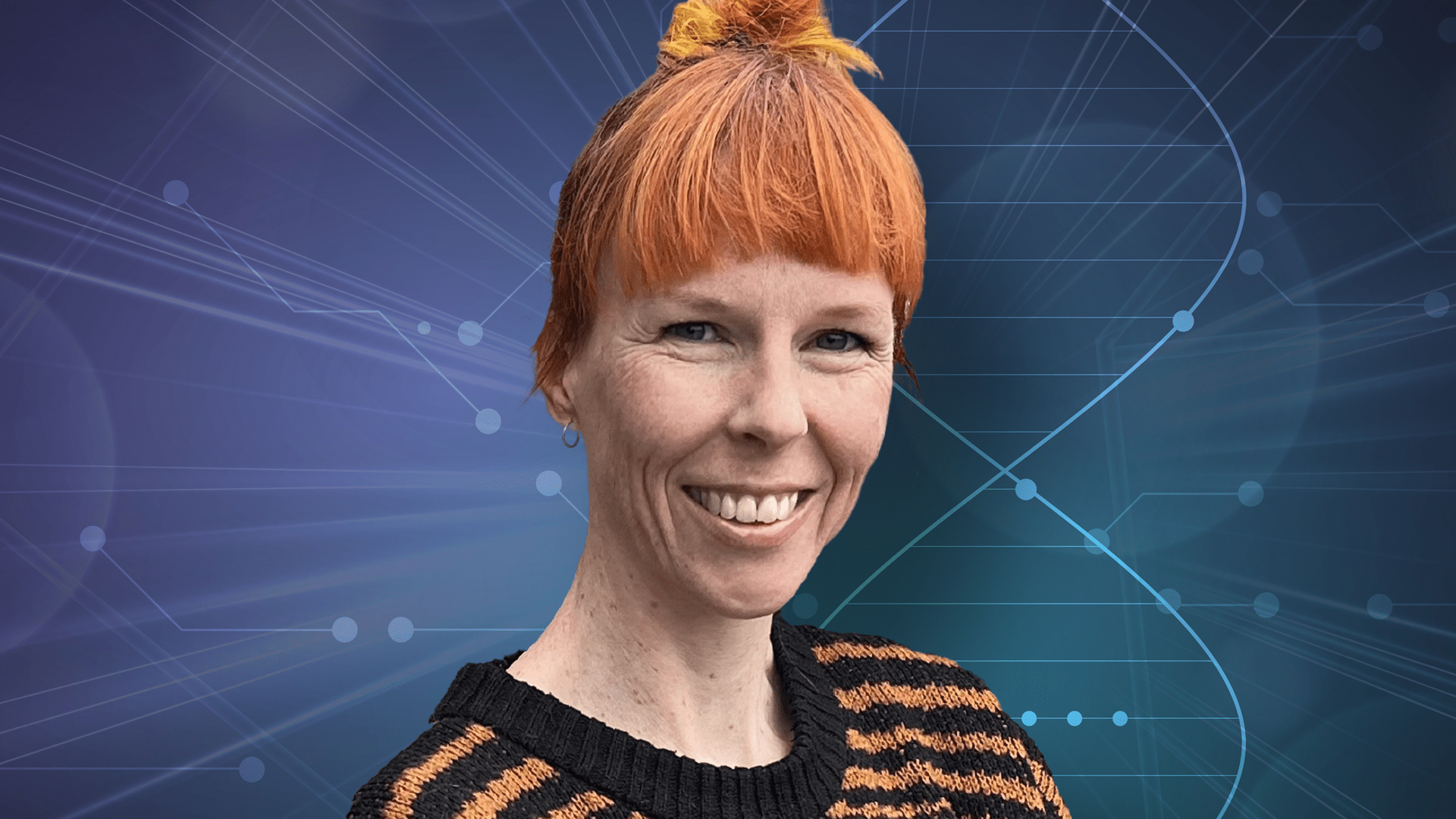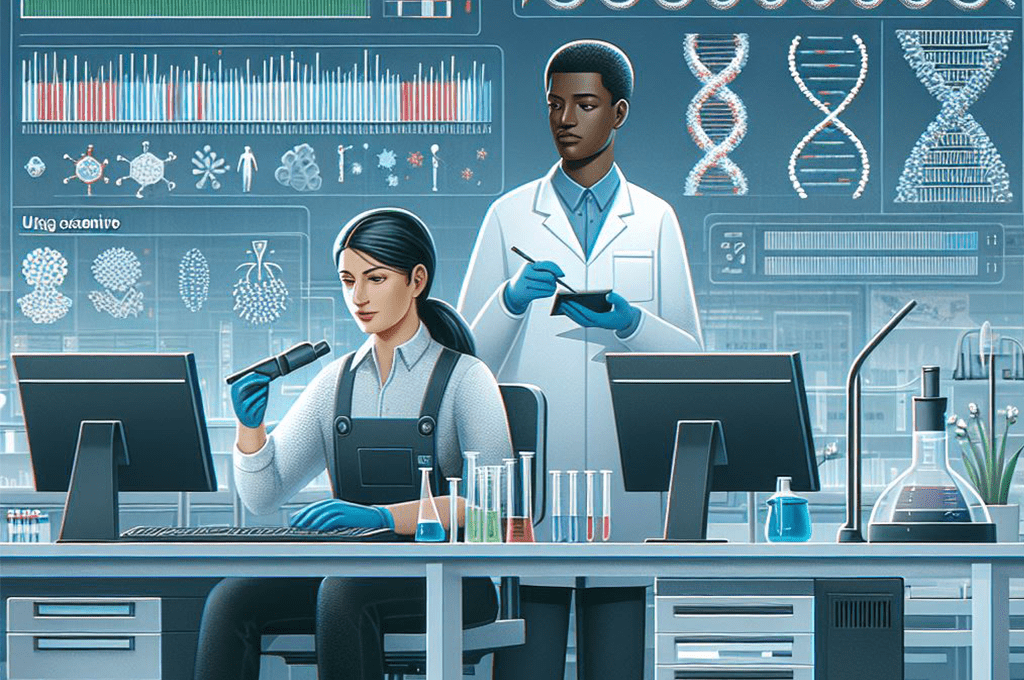SciLifeLab postdocs and unit directors exchange ideas
Last week, 21 postdocs and four unit directors met in Uppsala to present their work and were given an opportunity to interact with each other during the event Pushing the Frontiers.
The Scientific Director of SciLifeLab in Uppsala, Mia Phillipson, and the SciLifeLab committee at Uppsala University set the stage for the heads of the four former SciLifeLab pilot units at Uppsala University, as well as the 21 postdocs financed by the SciLifeLab in Uppsala postdoc programs of 2017-2018.
Staffan Svärd, from the SciLifeLab committee at Uppsala University, begins his introduction by noting that the schedule is somewhat tight. The audience laughs, but he is quite right, it’s a busy day. First off is a session with postdocs presenting their projects.
”I would love to be a postdoc again, that would be a dream come true, I think of it as a time of digging deep into a project”, says PI Mattias Jakobsson, who has not yet found a postdoc for the project he presented.
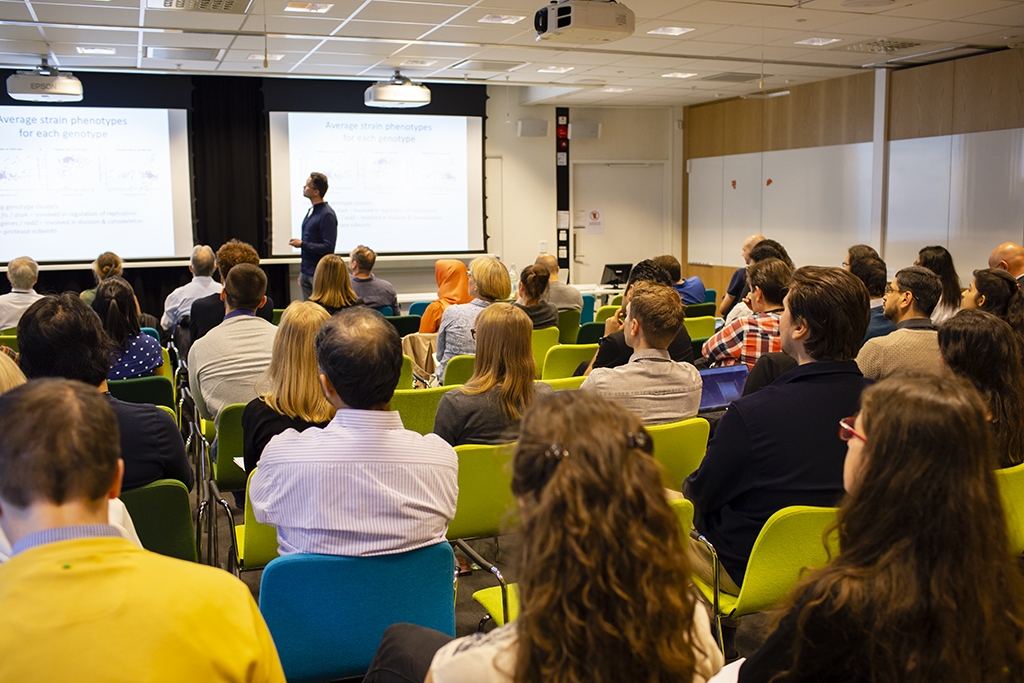
Both Staffan Svärd and Mia Phillipson emphasizes that one goal of the postdoc program is to facilitate new collaboration.
Ioanna Brannström, one of the presenting postdocs, finds the other talks interesting, but identifies two worlds among the postdocs: the human, medical, side and the biodiversity, non-human, side. Ioanna is part of the latter and occasionally has a hard time following the medical related presentations.
Can you exchange experiences anyway?
“I can get inspired by their work but it’s hard for me to exchange ideas with them. Ideas of those who for example work with microfluidics are really applicable for my research, however”, says Ioanna Brannström.
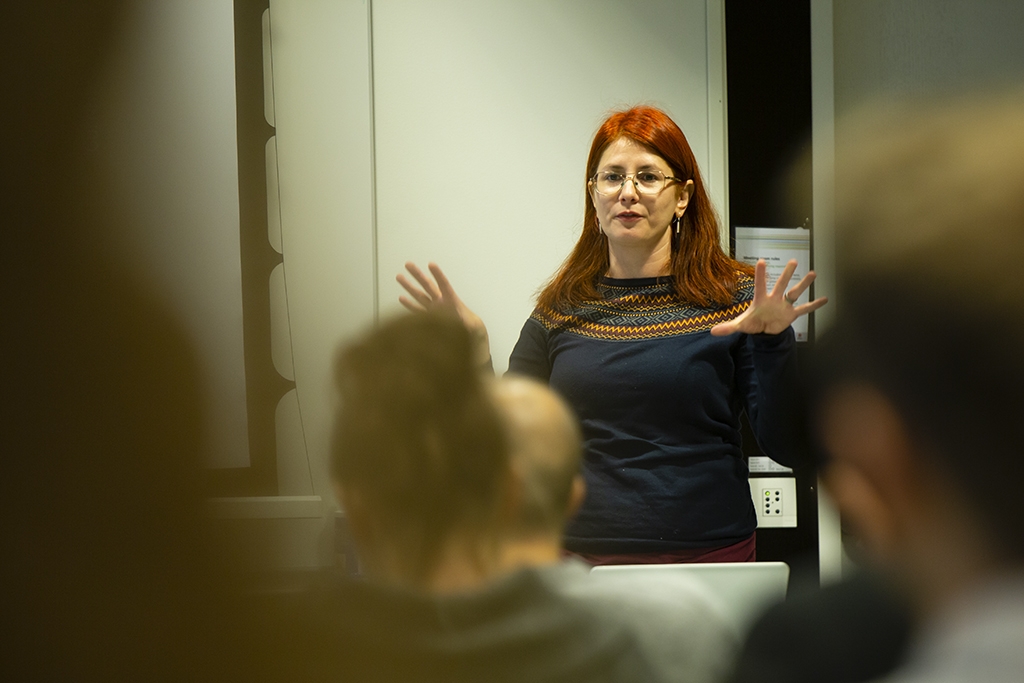
Four units also present their work. Scientific Director Mia Phillipson explains that one mission of SciLifeLab is to develop and bring in new technologies, and that is precisely what these units do.
Maria Tenje, Director of the Customized Microfluidics unit, says that their unit helps with customizing microfluidic systems for researchers’ specific needs and that their service can in short be described as ”a toolbox for new discoveries in the molecular biosciences”.
The work of the National Resource for Mass Spectrometry Imaging was presented by Director Per Andrén, who listed a whole number of projects the unit is involved in, including metabolomics, aging, and drugs of abuse.
Director of the Preclinical Cancer Treatment Center, Fredrik Swartling, stated that they can perform surgeries, radiation and chemotherapy in preclinical research studies; perform better modeling of metastasis; and study relapse or therapy resistance mechanisms.
“Many cancer researchers consider radiation an old blunt tool to treat patients, but today we have radiation treatments that are very sophisticated, sensitive and have very good precision”, says Fredrik Swartling.

Bottom: Maria Tenje, Director of the Customized Microfluidics unit; Fredrik Swartling, Director of the Preclinical Cancer Treatment Center.
To perform positron emission tomography, all you need is a living organism, a compound labeled with a positron emitting nuclide – a “tracer” – and a device that can detect this – a PET scanner, says Sergio Estrada, Director of the Preclinical PET-MRI Platform, but continues: “in reality it’s not that easy”. Since radioactivity is their main tool, something that makes things a bit trickier is that their materials degrade with time.
The day ends with an open discussion, monitored by Mia Phillipson, about the future of the SciLifeLab postdoc program. The participants shed light on several topics, including suggestions of improved guidance to the suitable unit – it’s easy to turn to local units, but the goal is that geography should not matter when it comes to choosing units, the audience concurred.
